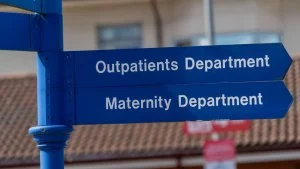Jess’s Rule Rolled Out in England to Prevent Misdiagnoses of Serious Illnesses

Contact
Table of Contents
Jess’s Rule establishes a “three strikes and rethink” approach for GP practices to prevent avoidable missed diagnoses deaths.
The government and NHS have launched Jess’s Rule, a new patient-safety initiative named in memory of Jessica Brady. Jessica was just 27 when she lost her life to cancer after more than 20 GP appointments failed to diagnose her illness until it was too late.
What is Jess’s Rule?
Jessica Brady was a healthy aerospace engineer when she began experiencing abdominal pain, persistent coughing, vomiting, weight loss and severe fatigue in September 2020. Over a period of five months, she saw 6 different GPs at her practice, with around 20 consultations in total. The consultations were mostly undertaken by video due to Covid-19 restrictions. The working diagnosis was long Covid, though Jessica had tested negative for coronavirus twice in that time.
It wasn’t until after her mother paid for a private referral that doctors discovered stage 4 adenocarcinoma. By then, the cancer had spread throughout her body. Jessica died just three weeks after diagnosis in December 2020.
“Three strikes and rethink”
Jess’s Rule brings in a “three strikes and rethink” policy for GPs in England and Wales. If a patient has three appointments for the same problem without getting a diagnosis, the doctor must review the case in detail.
The rule gives GPs a specific framework to follow to ensure that nothing is missed:
Reflect on what the patient said and, in particular, consider whether there have been changes between the consultations. This reflection should include, when necessary, arrangements to have continuity (i.e. the same GP) and to consider whether physical examination rather than telephone or video appointments may be needed.
Review the case with peers. By seeking second opinions GPs can consider other conditions or treatments.
Rethink the approach. If the patient is not improving, it may be appropriate to initiate more tests or to make a specialist referral.
Jess’s Rule follows Martha’s Rule, a hospital safety initiative introduced after 13-year-old Martha Mills died from sepsis in 2021. Martha’s Rule gives patients and their families the right to request an urgent review by an independent clinician if they are worried a patient’s condition is deteriorating and their concerns are not being addressed.
Between September 2024 and June 2025, Martha’s rule generated 4,906 calls to helplines, leading to 241 potentially life-saving interventions and 720 changes in patient care. We hope that Jess’s Rule will have the same positive impact.
What does Jess’s Rule mean for medical negligence claims?
Jess’s rule is an important step forward. It should mean that GPs have a lower threshold before they consider any changes to a care plan that is not working. They may choose to make earlier referrals. Ultimately, it is to be hoped that the types of patient harm we see arising from GP negligence at Osbornes are wholly avoided. That is better for patients and the NHS as a whole. Current data from NHS Resolution, the NHS body responsible for claims management, indicates that there are 2,229 new claims notified against GPs per year.
Jess’s Rule is born from a cancer misdiagnosis. Late diagnosis and cancer misdiagnosis can occur when there is unconscious bias in medical decision-making – an issue that impacts younger patients in particular. A survey commissioned by the Teenage Cancer Trust suggests that nearly half (46 percent) of young people diagnosed with cancer, report having had to attend three or more GP appointments before receiving a referral to cancer services for diagnosis, because doctors attribute their symptoms to everyday, less serious health issues.
Jess’s Rule has the potential to make a real difference to patient outcomes by:
- Triggering a rethink – the third appointment for the same symptoms is now a clear trigger point for GPs to take stock. This helps break the pattern of simply maintaining a treatment plan that is not working.
- Pushing for escalation – more tests, introducing second opinion or peer review and onward referral will become part of the standard of care.
- Ensuring continuity of care, where that is helpful to the management of a complex condition.
The law regarding medical negligence remains the same. It will be necessary to show that care provided, whether through acts or omissions fell below an acceptable standard. However, Jess’s Rule, will likely mean that GPs will now be expected to demonstrate that there has been appropriate review, reflection and referral.
From a treatment perspective, Jess’s rule may lead to the approach adopted by different GPs becoming, with time, clearer and more consistent. That would be good news for patients who want early diagnosis and the best care possible.
Share this article
“Osbornes handles a wide range of high-value and complex clinical negligence cases, with particular expertise in birth injury, delayed cancer diagnosis, spinal injury, and fatal claims.”
“Osbornes Law is an established firm which handles a breadth of complex and high-value clinical negligence matters.”
Contact us today
Call us 020 7485 8811
Email us Send us an email and we’ll get back to you
Hugh has particular strength handling issues of causation and informed consent.
Hugh Johnson advises on claims regarding failures to diagnose and manage spinal injuries, as well as failings in psychiatric care.
He thinks outside the box and is always thinking a step ahead of his opponent.
Hugh is utterly charming, highly empathetic and a first rate lawyer. He always comes in with good observations.
Osbornes Law offers experience in obstetric and fatal claims as well as niche cauda equina cases.
The team has particular expertise in cases stemming from delays in diagnosis as well as surgical injury and wrongful birth claims.
Osbornes Law is an established firm which handles a breadth of complex and high-value clinical negligence matters.
They are a very tight team. They're very friendly, helpful and obtain excellent results for clients.
A quality firm of solicitors with excellence at all levels of the team.
Hugh's technical knowledge is superb.
He is excellent with very complex cases and their nuances.
I am very confident with Hugh representing me and always value his expertise and advice. He's always many steps ahead.
He is a master tactician and so on the ball; not a single thing goes under his radar. He really understands the medical side and is always thinking about how to achieve the best outcome for clients.
Hugh Johnson is fiendishly intelligent, with a laser sharp focus on the issues that matter.
Osbornes are always professional and diligent in respect of their clients.
Osbornes has an excellent depth of experience across the team.
Across the board, they are all a pleasure to work with. They always keep a pragmatic head and all have an eye on the best outcome for the client.
Small but very effective and experienced team so every client benefits from the personal touch but also highly skilled litigation know-how. Capability of the team means they can handle all aspects of very complex cases as well as straightforward matters.
Osbornes has a skilled team of solicitors advising clients on a wide range of clinical negligence matters.
Hard working, approachable, good knowledge of clinical negligence and clients’ specific conditions
A joy to work with and always 100% client focused at all times.
The clinical negligence team at Osbornes is much lauded for its ability to ‘represent the diverse range of London-based clients
Stephanie has developed a particularly strong reputation for her handling of birth injury claims, as well as cases concerning surgical negligence and delays in surgery.
"An excellent firm which achieves fantastic outcomes for clients."
"Stephanie Prior takes on complex cases and gets excellent results. She has a background in medicine which serves her clients well and is a realistic but tough litigator."
"Stephanie Prior is hugely dedicated, adored by her clients, tenacious, efficient and extremely knowledgeable."
"Stephanie Prior is very good with troubled clients and is easily able to make them feel at ease."
"Stephanie shows sensitivity and deals with things in an understanding way."
Osbornes provides a very intimate and personal client service which is increasingly rare in this sector.
The lawyers in the team are highly experienced and will drive cases very hard on behalf of their clients.
"Stephanie Prior has a realistic attitude to the complexities of the cases. She wins the trust of her clients and goes the extra mile to ensure they get the best outcomes."
"Stephanie Prior... manages a varied caseload, including obstetric claims, child and adult brain injury cases and fatal and non-fatal spinal cord injury cases."
"Stephanie is experienced, knowledgeable of all aspects of clinical negligence work, and strategic in running cases."
"The team were extremely professional in putting my needs first. There was a joined-up approach to catering for the client, and all lawyers involved were briefed and constructive."
Stephanie Prior is always very professional and kind. Highly recommended.
Quite simply excellent, with a highly competent and well-rounded team. They understand complex medical litigation and have been our lifesavers, and we will always owe them our immense gratitude.
Related InsightsVIEW ALL
- 30.10.2025
Addenbrooke’s Hospital Complaints
Review finds harm to children by surgeon at Addenbrooke’s Hospital An independent review by Cambridge University Hospitals NHS Foundation...
Read more - 2.9.2025
New Medical Negligence Head for Osbornes to Spearhead...
Hugh Johnson joins Osbornes Law to lead the firm’s medical negligence team Hugh Johnson has been appointed as new...
Read more - 27.8.2025
HSSIB Review Exposes NHS Maternity Failures
Patient safety body HSSIB publishes exploratory review of maternity and neonatal services As Head of Paediatric and Birth Negligence cases...
Read more - 12.5.2025
Complaints Against Suspended Surgeon Ms Kuldeep Stohr
Ms Kuldeep Stohr, orthopaedic surgeon at Addenbrooke’s Hospital suspended In February 2025, Cambridge University Hospitals NHS Foundation Trust (CUH) confirmed...
Read more - 4.4.2025
Time To Move On From Physician Associates?
BMA raises concerns over patient safety: the risks of Physician and Anaesthesia Associates in the NHS The British Medical Association (...
Read more - 19.9.2024
Report highlights failings in maternity care
The Care Quality Commission (CQC) has recently carried out a national review of 131 maternity inspections between 2022 and 2024, finding that failures...
Read more - 30.7.2024
What Is the Role Of a Physician Associate?
What does the Position of Physician Associate Mean for the NHS? There are many different jobs within the NHS, each...
Read more - 11.1.2024
New UK Supreme Court Ruling regarding Secondary Victims...
The Supreme Court has today, on the 11th January 2024, upheld the Court of Appeal’s order to dismiss the claims...
Read more - 11.1.2024
Secondary Victim Claims
Secondary victims in clinical negligence cases What is a secondary victim in clinical negligence cases? Most compensation claims are concerned...
Read more - 12.12.2023
NHS Compensation Payouts Guide
What Are NHS Compensation Payouts? In the UK, the National Health Service delivers the vast majority of healthcare services. When...
Read more - 31.8.2023
Can you sue the NHS for waiting times?
The NHS is facing an unprecedented challenge with 7.47 million people waiting for routine treatments. This crisis impacts everyone, from those...
Read more - 31.8.2023
Hyponatraemia – Symptoms, Causes & Negligence
What is hyponatraemia? Hyponatraemia is a condition where sodium levels fall below a certain level, which can be dangerous. All...
Read more - 10.8.2023
Ambulance Delays Affecting Rapid Patient Treatment
Failure to Meet Ambulance Response Targets In 2017, the Secretary of State for Health accepted the new ambulance performance standards recommended...
Read more - 9.6.2023
Early Notification Scheme – is it helping or failing...
What is the Early Notification Scheme? The NHS Early Notification Scheme (“ENS”) has reached its sixth anniversary. Established in April 2017,...
Read more - 23.3.2023
Private Pregnancy Scans and Substandard Care
In the news, it has been reported that private clinics that offer pregnancy scans to women are not meeting the...
Read more - 14.2.2023
Iron Infusion Injury Claims
The risk of extravasation injuries during iron infusion therapy Iron infusions, such as Ferinject, are often recommended for patients with...
Read more - 9.11.2022
Delayed transfer to Accident & Emergency causing harm
The Healthcare Safety Investigation Branch (HSIB) has identified that patients may come at risk of harm whilst waiting in ambulances...
Read more - 9.11.2022
Breast cancer screening mammograms and negligence
Breast cancer screening has improved significantly in the UK due to research bettering the understanding of this terrible disease, which...
Read more - 21.9.2022
Are maternity services safe? – Part 2
In April last year I wrote a piece about government setting up a taskforce to look into why there are...
Read more - 8.9.2022
Poor interpretation of CTG can result in stillbirth...
Poor interpretation of a Cardiotocograph, more commonly known as a CTG, is a leading cause of stillbirth and brain injuries...
Read more - 14.7.2022
Insulin overdose in hospitals due to limited staff...
A century ago, insulin was first used to treat a 14-year-old boy dying of type 1 diabetes. A hundred years later,...
Read more - 6.7.2022
NHS aims to reduce waiting times with Elective...
The NHS recently recorded their waiting list to be at 6.5 million, a record high. Much of this backlog is due...
Read more - 29.6.2022
Nottingham Maternity: Donna Ockenden to Chair Independent Inquiry
An interim report on the state of maternity services at Nottingham University Hospitals NHS Trust has just been released. However,...
Read more - 23.2.2022
Women from ethnic minorities experience worse maternity care
It has been reported today that the government has set up a new task force to look into why there...
Read more


























